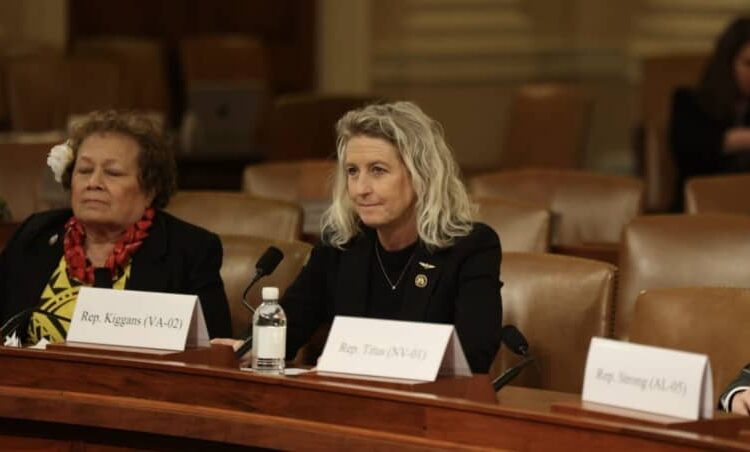(The Center Square) – Legislation to ban members of Congress and their families from trading individual stocks to prevent conflicts of interest has been introduced by a Virginia lawmaker.
Rep. Jen Kiggans, R-Va., is joined by Reps. Raja Krishnamoorthi, D-Ill., Michael Cloud, R-Texas, Alexandria Ocasio-Cortez, D-N.Y., Josh Riley, D-N.Y., and Joe Neguse, D-Colo., in sponsoring the Ending Trading and Holdings in Congressional Stocks (ETHICS) Act.
The measure would prohibit lawmakers, their spouses and dependent children from owning or trading individual stocks, securities, commodities or futures. Members would be required to either divest prohibited assets or place them into a qualified blind trust.
The legislation sets strict penalties for violations.
Lawmakers who fail to divest or place assets into a blind trust could face fines equal to the greater of their monthly salary or 10% of the investment’s value. Improper disclosures of blind trust contents would carry penalties of $10,000 per violation or 1% of the trust’s value, and late stock trade reports would draw a $500 fine.
Kiggans said the bill is aimed at restoring public trust in government.
“The ETHICS Act will ensure no Member of Congress can use their power and position to enrich themselves,” she said in a statement. “When more and more Americans are losing trust in our institutions, including Congress, this bipartisan bill is one way we can begin to restore that trust.”
Krishnamoorthi called the legislation the most comprehensive reform yet to address conflicts of interest. “When Members of Congress hold financial assets that stand to be affected by their own policy decisions, it creates not just the appearance, but often the reality, of a conflict of interest,” he said.
Polling has consistently shown strong public support for banning stock trading by Congress.
Lawmakers behind the bill pointed to polling that shows roughly 70% of voters support banning stock trades by Congress. The release also noted past reporting that found lawmakers traded in companies tied to their committee work, raising questions about conflicts of interest.
The ETHICS Act has been referred to multiple House committees, including Administration, Oversight and Government Reform, and Judiciary.


